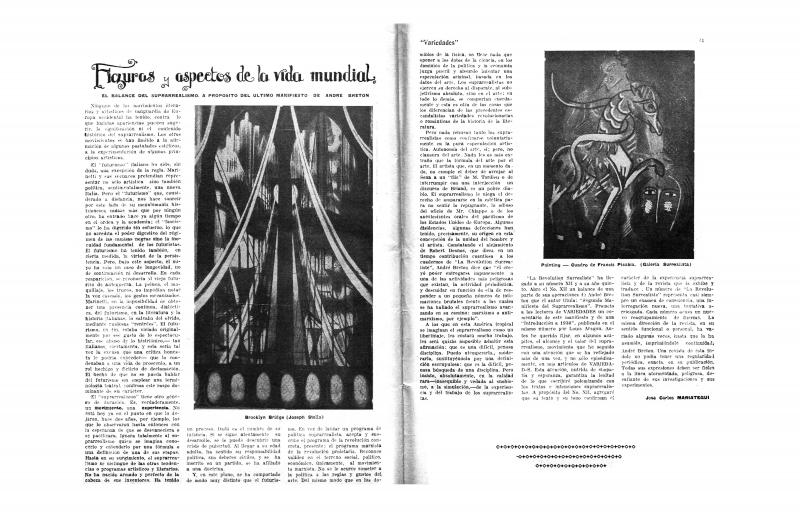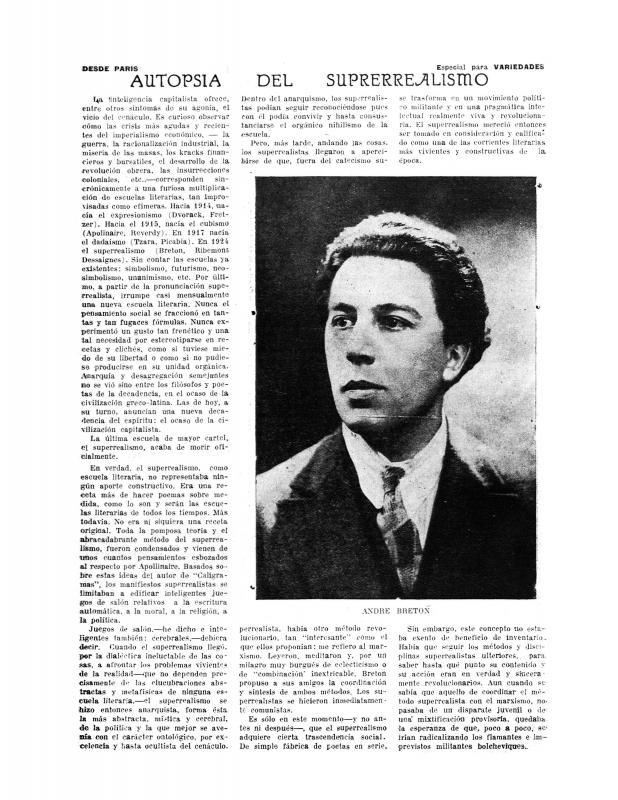In this essay José Carlos Mariátegui discusses the French poet André Breton’s “Second Manifesto of Surrealism” and Louis Aragon’s “Introduction à 1930,” both of which were published in number XII of the magazine La Révolution Surréaliste. [See also the following texts in the ICAA digital archive: by José Carlos Mariátegui “Figuras y aspectos de la vida mundial: El balance del suprarrealismo. A propósito del último manifiesto de André Breton” (doc. no. 1293479); and by César Vallejo “Desde París: Autopsia del suprerrealismo” (doc. no. 1293573)].
Published in the twelfth issue of La Révolution Surréaliste (December 1929), the second Surrealist Manifesto, written by André Breton, sought to clarify the movement’s political leanings and explain the expulsion of some of its old supporters. Due to its controversial contents, the text was reviewed and discussed a few months later by both José Carlos Mariátegui and the poet César Vallejo, founder and member, respectively, of the PSP (Partido Socialista Peruano), the Peruvian Socialist Party. As an intellectual who was attuned to political and cultural events in Europe, Mariátegui, having just returned to Peru in 1923, was very knowledgeable about avant-garde movements, and considered surrealism to be the most transcendent among them for having been the only one to commit to the Marxist goals of the proletarian revolution. In fact, Mariátegui stressed the role that Breton’s “crisis in consciousness” could play in the development of a new social order. He tellingly rejects the “épatante intention” (solely for the bourgeoisie) of several phrases in the manifesto that go beyond the proposed political-ideological program and, instead, advocates overcoming any rationalist ties. He speaks highly of Breton, however, as compared to César Vallejo’s subsequent aggressive attack in “Autopsia del suprerrealismo,” the article he sent from Paris. In his article, Vallejo harshly challenges the Marxist commitment assumed by the surrealists (whom he sees as being steeped in a nihilism that runs contrary to communist doctrine) and denounces the formulaic nature of an avant-garde he describes as “literary schools.” Furthermore, his demand that intellectuals commit to the proletarian revolution reflects the radicalization of his political position after taking two trips to Russia, in 1928 and 1929.


